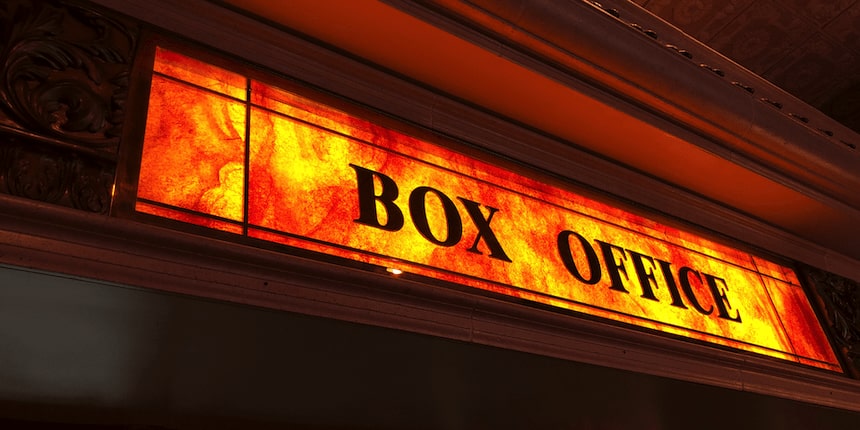Night club entertainment is more than just lights and sound; it’s an experience carefully orchestrated to resonate with club-goers, thrill-seekers, and lovers of the night. In this vibrant industry, the way you manage your ticketing can mean the difference between sold-out nights and a quiet room. But to shine and stand out from a saturated market it takes more than the right nightclub entertainment. A night club must also use dynamic and innovative ticketing strategies to sell out and maximize financial success.
As club managers and event promoters, your goal is to create events that not only pulsate with energy but also sell tickets faster than a bass drop. This post will illuminate the path to effective ticketing strategies that attract the right audience, elevate the pre-event buzz, and ensure a seamless customer journey from their initial purchase to the last dance.
Understanding the Night Club Entertainment Target Audience

Attracting an audience starts with knowing them intimately. Conduct tailored market research to uncover your target demographic’s behaviors, preferences, and spending power. This might entail surveys, social listening, and digging into analytics. For traditional club nights, perhaps you appeal to locals, while high profile events bring in individuals from a wider geographic area.
Demographic Dive
Before a ticket is even designed, one must understand who it’s aimed at. Different nights cater to different audience segments, and these are often drawn from clear demographics; whether it’s a millennial crowd looking for the hottest DJs or a more mature audience who values theme nights, each group requires a tailored approach to reaching them.
Knowing your audience is more than just knowing their age — it’s about understanding their spending habits, social behavior, and the type of entertainment they resonate with. Utilize market research, customer surveys, and even social listening to build this profile. Market research shatters ambiguity, providing direct insights into the preferences and spending behavior of your potential crowd.
Market Research Insights
Leverage data analytics to gain insights into the age range, music preferences, and booking times of your attendees. For instance, you may realize that electronic music fans under 30 tend to make their purchases the same week as the event, while an older crowd may prefer to plan further ahead.
Demographic Diversity
Clubs often see a varied customer base. Night clubs are as diverse as the cities they inhabit. A high-end rooftop venue in New York hosts a different crowd than the Blue Bird Cafe in Nashville. Tailored audience events with specific entry requirements and program catering to a diverse audience can attract wider interest. Segmenting demographics can also help in content and campaign customization.
Preference Profiling
Does your audience favor a specific genre of music or are they enthusiasts of a lively social scene? Is it about the night club entertainment or the night club experience? Preferences can change with trends, so it’s essential to keep a finger on the pulse of your target demographic.
By understanding and segmenting these markets, you can tailor your ticketing approach to expectations and economic conditions.
Engage with your community through social media polls, attend similar events to gather direct feedback, and keep a watchful eye on ticket sales. A clear understanding of your target audience’s preferences will significantly inform not just the type of event you organize but also the pricing and promotional strategies you employ.
Night Club Entertainment Pricing Strategies That Pop
Strategic Pricing
The art of pricing is more than stamping a number on a ticket. It is a story of perceived value and tangible benefits. Pricing isn’t a one-size-fits-all deal. It must align with the event value and the audience’s willingness to pay, often necessitating different tiers and incentives to drive early sales.
There are many approaches to ticketing your nightclub entertainment. One that is often in the news is Dynamic Pricing. Dynamic Pricing uses AI algorithms to change the price of a ticket in real time based on the demand at that moment. This approach means that ticket prices will be continually adjusted during the time they are on sale. The result can be extremely high prices for tickets to major artists. Typically, this form of pricing is only used by large ticketing platforms and is limited to certain ticketing tiers or sections. Live Nation recently announced its intent to expand VIP options and sections subject to dynamic ticket pricing. Dynamic pricing is not practical for smaller venues, such as nightclubs or other concert venues. A tiered and variable pricing strategy is a better fit for such venues to maximize their income from shows in their venues.
Let’s begin by saying “One size doesn’t fit all.” The pricing strategy adopted for tickets will depend on your goals. A high price can suggest exclusivity and quality, but it might also limit your reach. On the other hand, setting the price too low could undervalue your event. Tiered ticketing options along with a variable pricing strategy, holds clear advantages for each tier, can often strike the right balance.
Tiered ticketing
Unlike GA tickets, other ticketing tiers allow clubs to charge premium pricing on exclusive experiences like VIP tables, meet-and-greets, bundled merchandise or services, etc. Audiences today are seeking a better experience when attending shows and many are willing to pay higher fees to get the experience they seek, whether it be a better seat or table, a chance to mingle with the entertainers, or other VIP options. It’s all about perceived value.
Variable Pricing Strategy
Venues that charge one price for a ticket whether it’s bought when the entertainment is announced, or the day of the show are missing out on maximizing their income from the night club entertainment they host. That’s why the industry standard is variable pricing.
Variable pricing is a pricing strategy in which the price of a ticket, product or service is adjusted based on various factors such as demand, time, and availability. It allows venues hosting entertainment events to provide a more personal purchasing experience. By offering a choice of ticket prices, potential buyers can choose a price point that fits their budget and preference.
Example of Variable Ticketing Strategies for Entertainment Venues
- Pre-Sales Pricing: Entertainment venues may offer tickets to certain groups, such as people who have attended previous shows, members of its loyalty program, members of a fan club, or subscribers to a mailing list before they go on sale to the public. Pre-sales buyers can be helpful in generating interest when they post on social media about their purchase and the event. They are also more likely to encourage early ticket purchases from their friends or followers.
- Early Bird Pricing: Venues can offer a lower price for tickets purchased in advance of an event. The idea is to boost the early purchase of tickets and help the show organizers better forecast demand. It means offering different ticket price points for the same event during the time that a ticket is on sale. For example, an entertainment company may offer “early bird” discounts for tickets purchased in advance, and then raise the prices as the event approaches and demand increases.
- Last-Minute Pricing: Venues can offer discounted tickets to customers who purchase tickets close to the event date. This is used to sell out the show. After all, ticketing is not the only way venues make money off an event. Food and beverage sales can generate a lot of revenue. Filling seats, even using discounted last-minute pricing is better than having them empty.
- Time-Based Pricing: Venues adjust ticket prices based on the date and time of the event. For example, tickets for a popular concert may be more expensive on a Saturday night than on a Wednesday afternoon. Matinees are priced cheaper than an event taking place on a Friday or Saturday night.
Another tactic is to adjust ticket prices at certain points during the sales cycle and announce the date of the increase in advance. Early Bird pricing is an example of time-based pricing. Announcing in advance the dates of increases in ticket prices will stimulate ticket sales as people delaying their purchase will want to take advantage of the lower price.
- Demand-Based Pricing: This involves adjusting ticket prices based on the demand for the event. If an event is highly popular and in high demand, ticket prices may be increased. This tactic is different from dynamic pricing in that it’s not a continuous adjustment. The event organizer adjusts the price of tickets up or down based on the ticket sales momentum. The price may be adjusted several times during the sales period.
Remember that fear-of-missing-out (FOMO) is a powerful motivating force to sell tickets. If potential buyers see ticket prices increasing (demand-based) or know that ticket prices will increase on a certain date (time-based) they are motivated to stop procrastinating and buy their tickets before prices increase.
Other Night Club Entertainment Ticketing Strategies
Discounting
Offering discounts as part of your venue ticketing strategy is an important means to maximize ticket sales. Early-bird tickets are an example of a discount over the standard retail price of a ticket. During the ticketing sales cycles, venues can run promotional campaigns offering discounts for those who respond to them.
It can take the form of offering a discount for those who sign up for the venue’s mailing list or for following them on the social media pages. Promotional campaigns with time limitations to purchase discounted tickets are another example. Discounts are also a great tool to find out which marketing channels and promotional campaigns are performing for your ticket sales.
Other discounts could include group discounts for groups purchasing tickets together, student discounts, senior discounts, etc.
Discounts are a powerful tool in your ticketing tactic inventory, but not all discounts are created equal. They should be used in a very targeted way to stimulate slow ticketing sales, reach a targeted audience, or reward loyalty. Offering too many discounts runs the risk of devaluing the standard ticket price or delaying the purchase at the standard price while buyers wait for a forthcoming discount.
Use discounts strategically. It’s important to segment your audience effectively here. What entices one group may be irrelevant to another. Your discounts should be tested, refined, and always aligned with the broader strategic intent of your event. It’s about being intelligent in the use and always using data to guide you.
Season Passes
While season passes are another form of discounting, they represent a great way to lock in ticket sales for multiple events, such as a concert series or a season of club entertainment. Venues can also offer smaller passes to a subgroup of events to decrease the price point for buyers. Done right, it may also give the venue an initial impression of the demand for the shows in question. Venues often provide additional perks with season passes such as priority seating, discounts on concessions, pre or post event receptions, etc.
In Conclusion: The Night Isn’t Over
As night club entertainment continues to thrive, the role of a strong ticketing strategy becomes increasingly critical. The secret to elevating your club’s ticketing strategy requires a thorough understanding of your target audience. Understanding who is coming out to your events or who you are targeting for ticketing sales requires knowing as much as you can about their demographics, interests, habits, social media use, and other nuances.
Couple that knowledge with strong ticketing strategy will go a long way to ensuring that your events are successful. As nightclub entertainment continues to thrive, the role of a strong, data-based ticketing and marketing strategy becomes increasingly critical. By mastering the art of ticketing, you’re not only selling entry to an event; you’re crafting the very experience that will resonate with your patrons, turn them into promoters, and fuel anticipation for your next electrifying night.
Ready to Craft Your Night Club Entertainment Strategy?
The intricacies of nightclub ticketing go beyond the act of selling. They encapsulate identity, culture, and the shared narrative of a community coming together to celebrate life. At TSE Entertainment, we don’t just understand this; we live and breathe it through each event we help craft. Chances are, we know more about those that attend your shows than you do. Don’t take our word. We have the data.
Ready to turn the next page to a more sophisticated approach to your shows? Contact us today, and let’s start writing your club’s next page. Whether it’s talent booking, sponsorship development, ticketing services, event promotion, audience profiles, or whatever you need, TSE Entertainment is here to help you achieve the goals you want with your shows.
800-765-8203 or info@tseentertainment.com
Related Posts:
Understanding Your Target Audience Before Hiring Entertainment for Live Events
3 Steps to Selling Out Entertainment Events: Part 2





